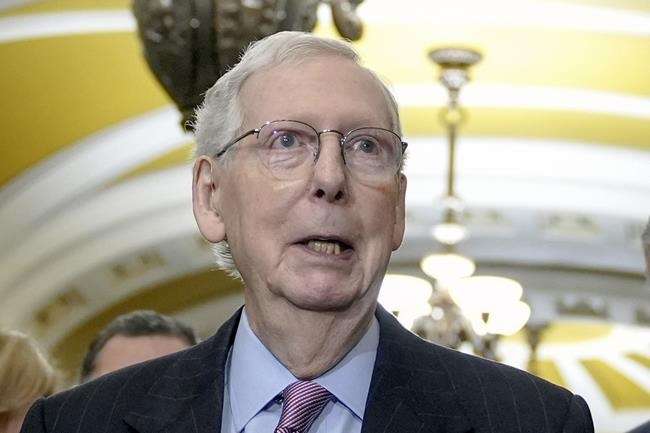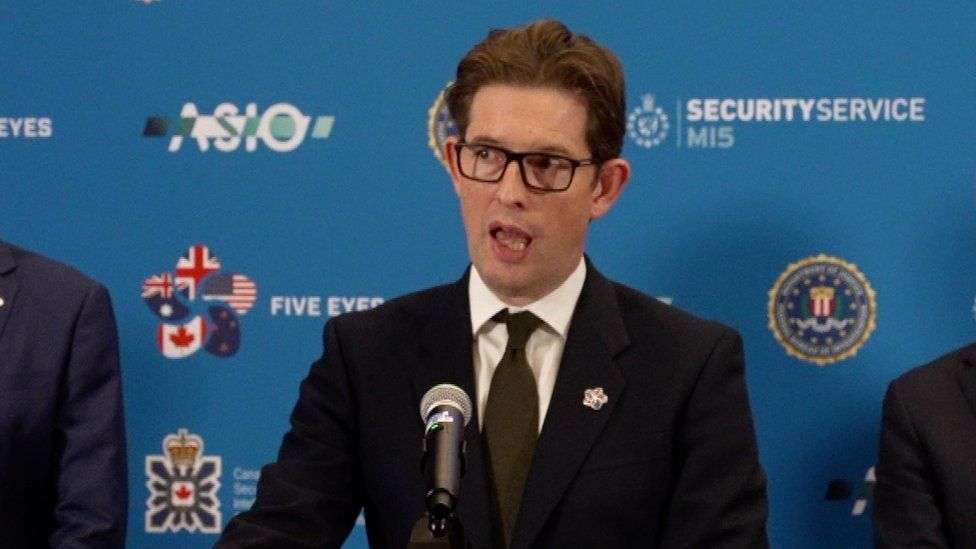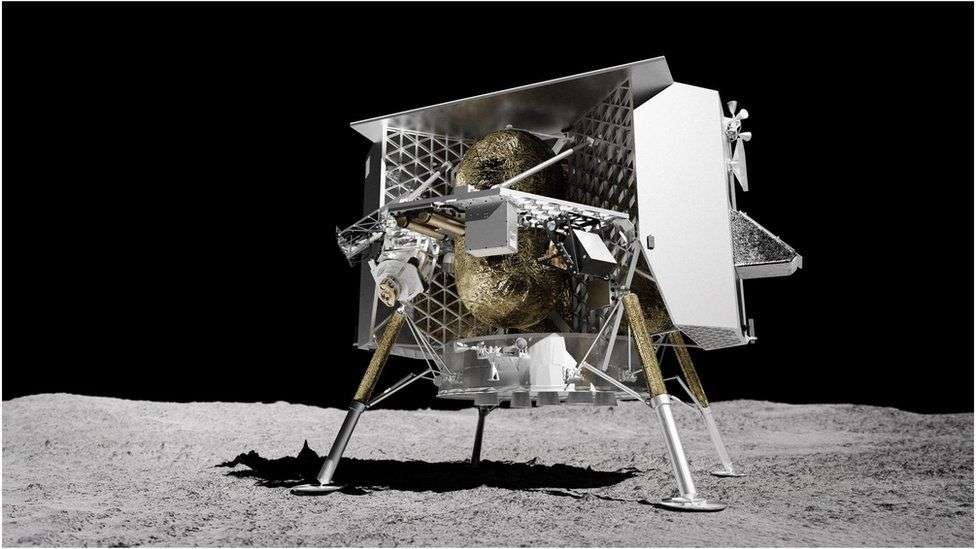Mitch McConnell, the US Senate's longest-serving Republican leader, has announced he is stepping down from his leadership position in November.
The Kentucky politician said it was "time to move on" in his address to the Senate on Wednesday.
Mr McConnell has proven key to passing conservative priorities and electing Republicans to Capitol Hill.
But he has fallen out with Donald Trump in recent years and feuded with him over his election falsehoods.
Mr McConnell, 82, has suffered several health scares in the past year though his staff say that has nothing to do with his decision. He twice froze when speaking during press conferences in the past year, and he suffered a concussion after falling at a hotel in Washington.
The Kentucky senator said in his speech that he would serve out his term, which ends in January 2027, but he would work "from a different seat in the chamber".
"I still have enough gas in my tank to thoroughly disappoint my critics," he said.
Over his long career, Mitch McConnell proved himself to be one of the most effective Republican leaders in the Senate in part because he could alternate between bare-knuckle political hardball and a willingness to compromise when he saw fit.
Mitch McConnell: From polio victim to political titan
In his speech, Mr McConnell reflected on his decades in the Senate, his age, and his family.
But he dedicated a large portion of his speech to the importance of US global leadership despite the ideological shift his party has undergone under former President Donald Trump's isolationist and populist rhetoric.
"I know the politics within my party at this particular moment in time. I have many faults, but misunderstanding politics is not one," he said.
"That said, I believe more strongly than ever that America's global leadership is essential to preserving the shining city on a hill that Ronald Reagan discussed," he added, referring to the Republican president who proactively fostered US alliances at the end of the Cold War.
Mr Trump's leadership has changed those views among many Republicans.
The former president has pushed the party further to the right, and he has regularly questioned the value of American military alliances and international trade.
He has also repeated false claims that he won the 2020 election - a point of contention between him and Mr McConnell - and emphasised his desire to crackdown on immigration.
The Kentucky senator's willingness to compromise on some of those issues, his support of foreign military aid, and his rejection of Mr Trump's falsehoods made him a villain for many on the right, who at conservative gatherings would regularly jeer at the mention of his name.
This also led to Mr McConnell's ongoing feud with Mr Trump - on political strategy and on personal comportment - culminating in a definitive break between the two after the 6 January attack on the US Capitol by Trump supporters.
During Mr Biden's term, the political shifts in the Republican Party have caused Mr McConnell to face increasing pressures from his Republican colleagues in the Senate who have remained loyal to the former president.
Mr McConnell remains the last member of the congressional Republican leadership not to endorse Mr Trump's re-election bid, although there were recent reports that a reconciliation was being brokered.
His Wednesday's announcement may put an end to those discussions. It may also be viewed as a decision by the veteran politician that mending fences with the man who frequently belittled him was a step too far.
But the Senate minority leader did not suggest his party's ideological changes or Mr Trump were the reasons for his decision to leave the leadership post, nor did he give any other motivating factor beyond a passing reference to the death of his wife's sister.
"To serve Kentucky has been the honour of my life, and to lead my Republican colleagues has been the highest privilege," he said. "But one of life's most under appreciated talents is to know when it's time to move on to life's next chapter."
President Joe Biden, meanwhile, told reporters that he had maintained "a great relationship" with Mr McConnell, though they often "fight like hell".
"I'm sorry to hear he's stepping down," he added.
It is uncertain who might next lead Senate Republicans, but there are three successors commonly mentioned in Washington: John Cornyn of Texas, John Barrasso of Wyoming and Mr McConnell's second-in-command - John Thune of South Dakota.








